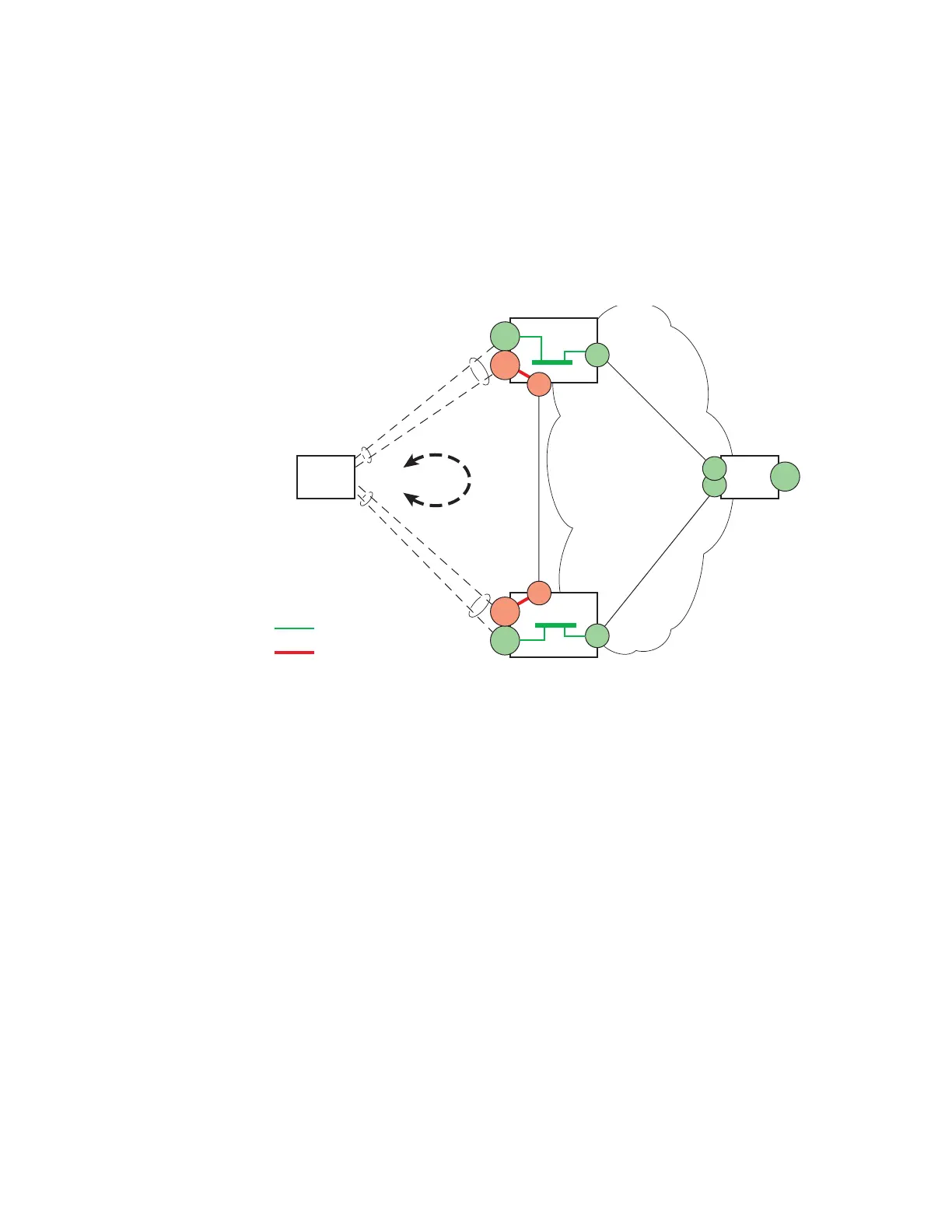Virtual Private LAN Services
7210 SAS M Services Guide Page 345
Configuring Load Balancing with Management VPLS
With the concept of management VPLS, it is possible to load balance the user VPLS services
across the two protecting nodes. This is done by creating two management VPLS instances, where
both instances have different active QinQ spokes (by changing the STP path-cost). When different
user VPLS services are associated with either the two management VPLS services, the traffic will
be split across the two QinQ spokes. Load balancing can be achieved in SAP protection scenarios.
Figure 54: Example Configuration for Load Balancing with Management VPLS
Note: the STP path costs in each peer node should be reversed.
CLI Syntax: config>service# vpls service-id [customer customer-id] [cre-
ate][m-vpls] [svc-sap-type {null-star | any | dot1q-preserve}] [custom-
er-vid vlan-id]
description description-string
sap sap-id create
managed-vlan-list
range vlan-range
stp
no shutdown
The following example displays a VPLS configuration:
*A:ALA-1>config>service# info
----------------------------------------------
vpls 100 customer 1 m-vpls svc-sap-type any create
stp
no shutdown
exit
sap 1/1/2:100.* create
managed-vlan-list
ESS
7210
SAS
STP
ALA-1
ALA-2
M
M
M
M
M
M
1/1
1/21
2
1/3
1/3
1/1:1
1/1:1
300:1
300:1
1/1:100
1/1:100
1/3
SAP
SAP
SAP
SAP
SAP
7210 SAS runs STP
in VLAN 1
= vpls 1 (m-vpls)
= vpls 10 (user vpls)

